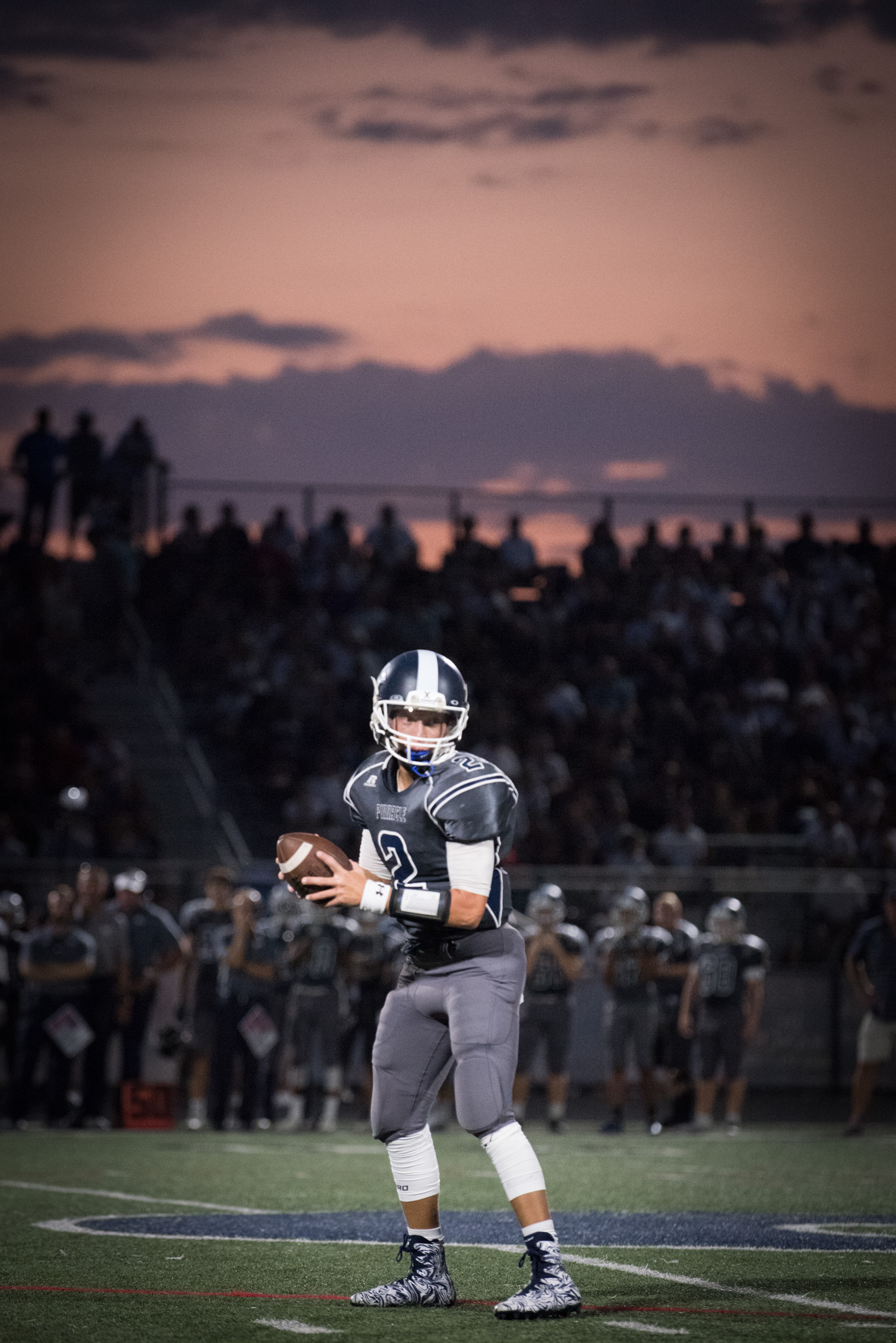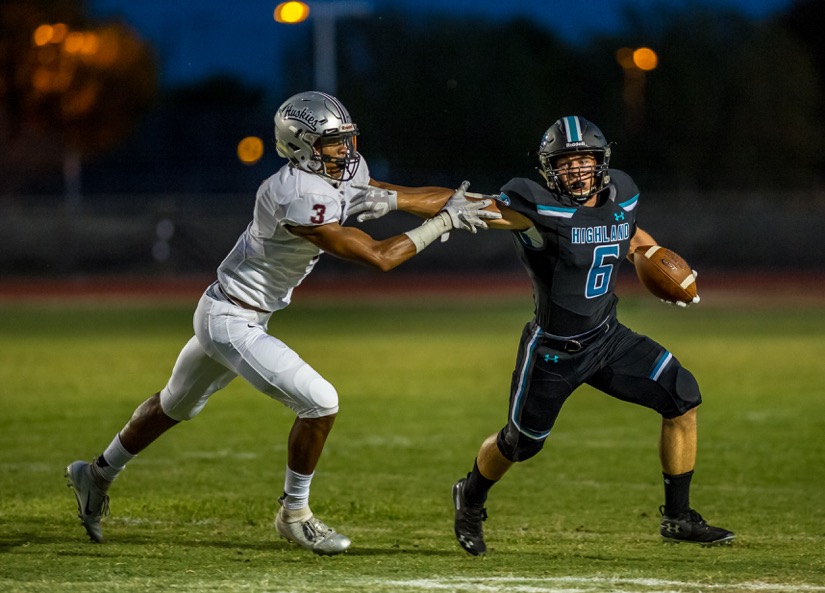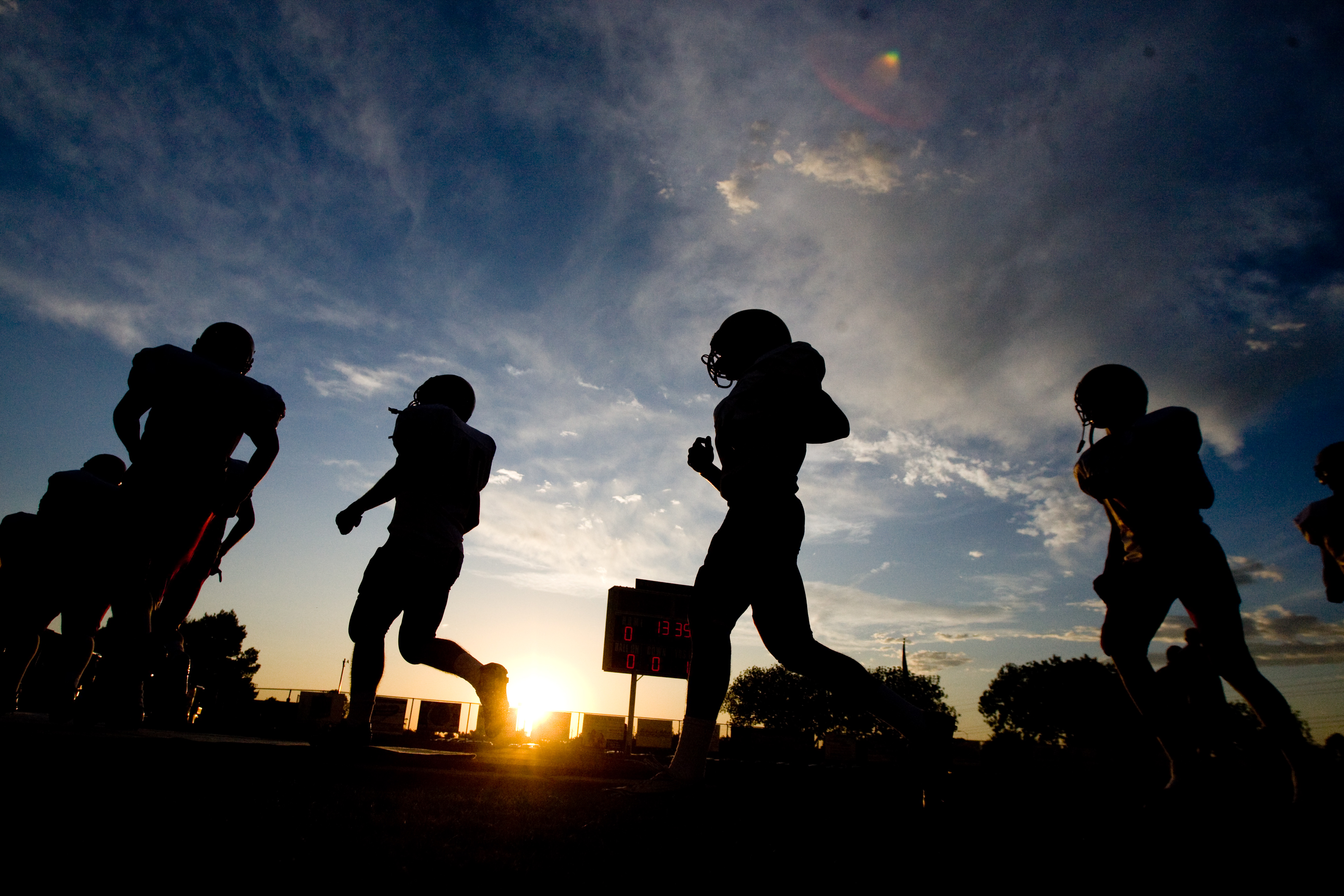A few weeks back Sports360AZ hosted an event where football coaches from around Chandler all got together at Valle Luna Mexican Restaurant to do various interviews with Brad Cesmat and his crew. It was a fascinating exercise to visit with so many coaches who were at various stages of program construction in such a short amount of time, and it’s taken me a couple of weeks to process some of the information those coaches shared. I want to share a few of my favorite quotes with you, as well as my thoughts on how they apply to more than just the programs these coaches are responsible for shepherding.
On motivating the motivators…
“We tell our kids, ‘you don’t stay the same. You’re either getting better or you’re getting worse.’ It’s the same with coaching. A lot of coaches get complacent and think they know it all and we can’t have that attitude. We’ve got to hire and retain coaches that have that same hunger to try and get better, and better themselves as coaches. Sometimes they’re just like kids, they’re not as motivated as much as they should be, and we’ve got to push their buttons to get them to get out there and grow as a coach… It’s human nature to get relaxed and think you’ve arrived, so it’s my job as a leader to tell those coaches ‘don’t forget what we did, don’t forget where you used to be, don’t forget how fast we can get back to where we used to be. These are the things we did to get where we’re at and we’re going to continue that. You’ve either got to do it, or get down the road. Buy in to everything we ask of you to the best of your ability like we ask the kids to do, and if you do that, then hopefully we keep this thing rolling.’ Coaches, as one person told me, and I won’t mention his name but he’s a long-time coach, he says ‘Kids don’t get you fired, coaches get you fired,’ and I think that’s a true statement. I think we have gotten so big as a program, and we’ve hired so many different coaches that if you’re not careful, coaches can get on different pages…”
-Perry Head Coach Preston Jones
This quote reminds me of something my wife is always telling me- “good leaders are less in the business of leading than they are in the business of creating leaders.” We often think of leaders as people that have made it, and now possess the qualification to tell others how to ‘make it.’ The truth is ‘making it’ is a daily occurence, and leaders are simply people who are dedicated to that daily process in their own lives, and the lives of others. It’s refreshing to think that the standards for for a high school football coaching staff meet or exceed the standards for the players they’re responsible for motivating. It’s much easier to preach accountability when you practice it yourself.
On building and maintaining a culture of excellence…
“These kids are great kids… I think out of the 20 kids that are recruitable kids, 17 of them are above a 3.6 GPA. That makes it easy to coach because they’re great kids and they just get it. That expectation is now going through to the younger kids and so everybody is trying to challenge each other academically, as well as in the weight room and on the football field. It’s all come together, so to be to sit back and watch these kids grow as young men, I’m very proud.”
-Chandler Head Coach Shaun Aguano
Iron sharpens iron. Coaches work to create a culture of passion and competitiveness, and if they succeed, they have the advantage and responsibility of picking the games at which their players compete. Chandler High has sought to make citizenship and academics a daily contest akin to the competition that lines up across from them on a Friday night. There’s something truly liberating about being able to differentiate between an opposer and a challenger. Opposition seeks to tear you down. A challenge is designed for self examination and growth. I get the feeling talking to Shaun Aguano that in his decade and a half at Chandler High, his goal has been to shift the mindset from one of opposition to one of challenges, and all these years later, academically and athletically, we’re witnessing the fruits of that labor.
On having fun…
“Although I’m only going to get one year with the seniors, it would be important to me that when they graduate, that they wished they got more than one year with me, because that would tell me that they enjoyed their time in my program. It would mean that they enjoyed the experience. From there, everything’s word of mouth, it carries down to the juniors and the sophomores and the freshman, where they enjoy being part of the Basha football program, regardless of whether they’re the best player, or the last guy that’s gonna get in the game. It’s important that all kids feel valued, and I’m not just saying that as coach-speak. There’s only 11 guys on the field at one time, what about the other 50, 60, 70 kids? What am I going to make that football experience for them valuable- something they can learn from and something they can enjoy? I think that, as coaches, is something we’re trying to find.”
-Basha Head Coach Chris McDonald
Football is still a game. It can be used as a tool to do all sorts of good in the right hands, but at the end of the day, this sport is simply one of many ways humanity quenches its thirst for competition, community, camaraderie and entertainment. There’s nothing wrong with kids having fun playing a game. Some might view the goal of a ‘positive experience’ as a millennial aspiration and evidence of a generation motivated by participation trophies, but that ultimately comes down to what your connotation of the word ‘positive’ is. Is winning not positive? Is discipline not positive? Is personal growth not positive? The real world eventually comes through to kick dirt in everyone’s face- and while some might see value in high school football kicking dirt in these kids’ faces early on to both prepare and inoculate them, I see football more as a tool for learning to overcome adversity, rather than just experience adversity for the sake of adversity. Coach McDonald also hits on another important point- that the program is ultimately more than what you put on the field. The kids that play are simply the tip of the spear- for that tip to be effective, you have to have a handle on the handle.
On restoring and rebuilding…
“We need to work hard with the kids to teach them the what the fundamentals are of what we’re doing. We need to keep things as simple as we can for the kids so that they can play fast and play aggressive. That’s where we’re going to get an aggressive effort. When you see Hamilton football next year, you’re going to probably see the the best pursuit team in the state, that’s our goal. When you get 11 guys there (around the football), good things are going to happen when they get there. I’ve been around a lot of them for three years. I know their personalities, I know their strengths. I know what they can do well, and we’re going to put them in the best fit so they can be successful.”
-Hamilton Defensive Coordinator Roger Schenks
They modern evolution of football has essentially been moving away from the idea that a group of men come together to find the best way they can fit into a system, and moving toward taking a group of men, analyzing their abilities, and saying, “Your strengths are our system.” Hamilton’s defensive struggles over the last couple of seasons have been, in part, due to other teams identifying what Hamilton has always done well, finding the cracks in the armor, and exploiting them. It’s refreshing to see a storied program realize that you have to adapt or die, because there’s a lesson there for the kids. You go with what works until what works stops working… and sometimes it’s alright to tear the house down and build back up from the foundation. Hamilton has big, strong, fast athletes. Simplifying what’s being asked of the players, playing to their strengths, and creating an effort-based culture is the only thing that is going to help bring back the mystique of a once-proud unit.
On being well-rounded…
“I think it’s important as a coach to be genuine and authentic in who you are, where you’ve come from and what you experiences are. Kids can feel that, they know if you’re being fake with them or not, or real with them or not. It also helps to have a diversified experience and background. It helps to connect with a variety of people. That’s one thing I’ve been able to do- not only connect with kids on a lot of different levels, but a lot of their parents, teachers and the people that we work with. That helps build that connection and also has an impact, not only on their performance on the field, but in the classroom.”
-Casteel Assistant Coach Bobby Newcombe
One of the reasons I respect Bobby Newcombe is that not only did he have success at every level of football as a player, he also had academic success, corporate success, and now, coaching success. He’s living, breathing proof of the symbiotic relationship between investing in yourself and benefiting others. You can’t give away what you don’t have to give, so a life rich in education and experience means that a coach like Bobby Newcombe serves as a fountain for the kids of Casteel. Being good is the ultimate goal of any football player or team, but football games, and careers, end. It’s important to invest in who you are away from the game, so that if you ever come back to it, as Coach Newcombe has, you bring with you the diversified interests and authenticity that help set the tone for who these kids are going to need to be once playing football is no longer a part of their lives.
On dealing with parents…
“The parents are very invested, which is a great thing to have. If you manage it correctly as a head coach, it can be something that’s positive and supportive to your program. I initially sold (football) as ‘This is something that’s going to give your boys the full high school experience.’ The academic part of what we do isn’t going anywhere. We incorporate study halls and everything it takes to maintain their GPAs and live up to those expectations that they have at home. My end of it is the discipline, the family nature, being able to work with others, and the overall high school experience because we all think back on our high school experience, and there’s class and football, regardless if you played, watched, cheered, whatever it was. I took that approach, and I think it was adapted wholeheartedly by everyone. They wanted their boys, and everyone to have that experience.”
-Arizona College Prep Head Coach Myron Blueford
“I’m so blessed and lucky at Perry, I think the parents are great… I don’t think the kids have changed. I think kids are still kids. I think that what the kids hear at home has probably changed a little bit. We always tell our parents that if your kid comes home and complains about the coaches, then we already know we have a problem, because that means you’re not on the same page. You’re not going to come and complain about dad if your parents are on the same page. You’re not going to complain about complain about mom to dad if they’re on the same page. If they come home and complain about the coach, they’re going to get supported by the parents, and the parents are going to put it back on the coaches. We tell the parents ‘If your son comes home, tell him to suck it up and deal with it. Go talk to a coach if you’re not happy.’ People back in the day didn’t used to go home and tell their parents when you got in trouble. You just didn’t do that in school or in sports.”
-Perry Head Coach Preston Jones
Myron Blueford is speaking on establishing a brand new program at a school hyper-focused on academics, and Preston Jones is speaking from a position of having one of the state’s largest student bodies, and carrying the expectations of needing on get kids scholarships and compete for state championships. In both situations, the coaches need parents that are invested in the kids’ success while understanding the ultimate goals, priorities and purpose high school football is supposed to serve. Coaches need trust and autonomy to shape young men, and parents, as advocates for their children, more and more have their children’s back rather than have their children’s backside. It’s a delicate balance and a difficult proposition to trust that someone else has your child’s best interest at heart. Sometimes the best way to advocate for your kid, is allowing them to become their own advocate, stand on their own, and deal with adversity, whether that adversity comes from the exterior, or is self-induced. Football provides plenty of those opportunities, whether the school is big or small.
—
Ralph Amsden
Publisher: www.ArizonaVarsity.com
Recruiting Analyst: www.DevilsDigest.com
Founder: www.TheDadLetters.com
“If you live with a heart full of gratitude, the world is a wondrous place” – Andrew Barnes





